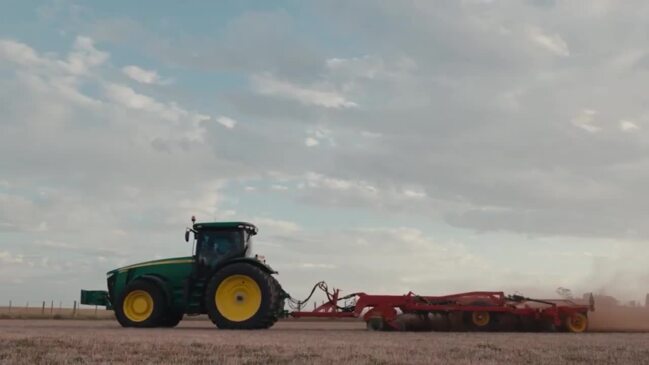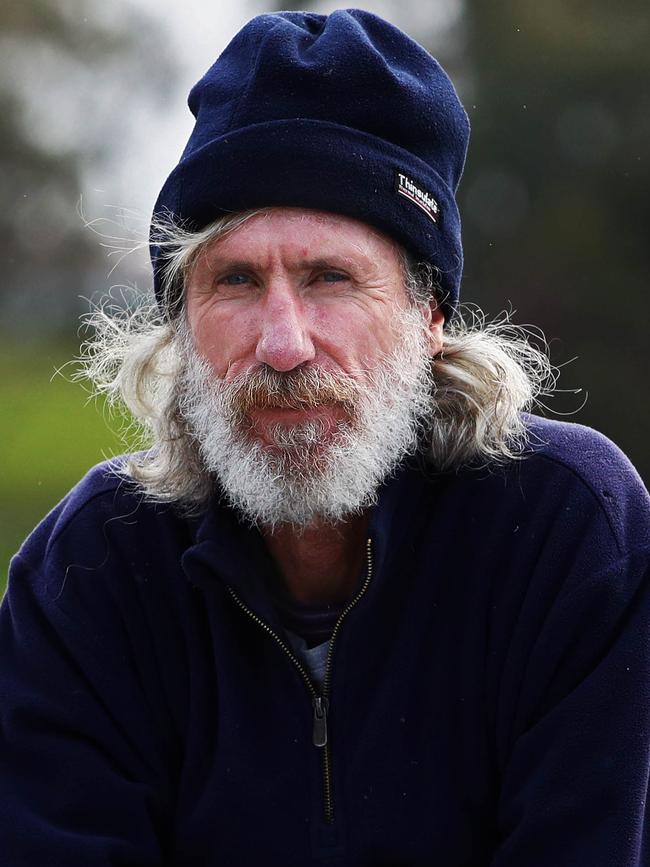Independents’ hit list: wind farms, dog racing and Dorothy Dixers
From taxing wind farms to banning greyhound racing, the policies of Tasmanian independents and minor parties are eclectic, but appear increasingly likely to influence the next state government.

From taxing wind farms to banning greyhound racing, the policies of Tasmanian independents and minor parties are eclectic, but appear increasingly likely to influence the next state government.
With polls in the state election campaign pointing to a hung parliament, a smorgasbord of minor party and independent candidates is in with a real chance of holding the balance of power.
Unless a drift to mavericks and minnows can be arrested in the next fortnight, Liberal leader Jeremy Rockliff or Labor leader Rebecca White face protracted negotiations to form a government after March 23.
Polls suggest the Jacqui Lambie Network, with little-known candidates and no previous state MPs, could win up to four seats, given the state’s proportional representation system.
Senator Lambie said she would leave it to her MPs to decide who should form the next government.
“I’m not favouring anyone – if some of my people get up they’ll have to be in the room discussing that,” she said.
“I have said to them … they’ll need to make that decision quite quickly because Tasmania needs stability. I’ve advised them not to take ministries … for the first year.”
Her MPs would never deny budget supply and would vote as a bloc, “treating each piece of legislation on its merits”.
“People go ‘you should have policies’ and I go ‘yeah, well, you guys all know where I stand and it pretty much flows’,” she said.
Senator Lambie wanted action on hospital ramping beyond the Liberals’ “bullshit” promise to ban it, as well as more counsellors and psychologists in schools, and solar panels on public housing.
While she famously told the Premier to stick the proposed Hobart AFL stadium “up his bum”, at least one of her candidates appears to back the project. She said the main issue with the stadium, aside from the cost, was a lack of transparency and business case.
Greens leader Rosalie Woodruff wanted a change of government and to have the balance of power to push Labor to make “real change”.
“With a new government and the Greens in balance of power we’ll fight for real action on climate, cost of living, housing, health and environmental protection,” Dr Woodruff said.


Former Labor leader David O’Byrne, standing as an independent in the southern seat of Franklin, was open to negotiating with both major parties.
“I will be raising the issues that are raised with me in my community – clearly, access to public housing (and) to a broad spectrum of health services,” he said.
He wanted Hobart’s proposed stadium to proceed to guarantee an AFL team and “drive significant economic opportunity”.
In sprawling rural Lyons, former Liberal-turned-independent John Tucker will support whoever provides “the best deal for the people of Lyons”. “I will be looking for outcomes for my constituents,” he said, adding he wanted funding for local community groups, roadworks and to rebuild or upgrade two schools.
More broadly, he wanted wind farms selling power to Victoria via the Marinus Link cable to pay a tariff to use Tasmanian transmission lines, ensuring a return to local power users.
And he would oppose the Liberals’ policy to open up 40,000ha of “peace deal” forests for logging.


In Hobart-based Clark, another ex-Liberal-turned-independent, Sue Hickey, would back the party she judged was most committed to “integrity” and “immediate” health and governance reforms. The latter included better disclosure of political donations, four-year terms and banning Dorothy Dixer questions in parliament.
“I’m hoping we’ll have enough influence to be able to shape a lot of these policies,” Ms Hickey said.
Clark independent Kristie Johnston would provide support to whichever party was asked by the governor to form government.
However, she wanted a government willing to move “very quickly on a range of integrity issues”, including truth in political advertising and donation disclosures.
Ms Johnston also wanted urgent action on hospital waiting lists and public housing, and would seek an end to greyhound racing, while opposing the AFL stadium and expanded native forest logging.


In northwest Braddon, perennial independent Craig Garland would seek improved fishing regulation, more public housing and an end to the Robbins Island wind farm.
“Robbins Island is the most stupid location for a wind farm,” he said. “When they put a bridge across to it, you’re going to give access to cats. It’s the only disease-free Tasmanian devil population in the state. And it is one of the most important areas in Australia for migratory birds.”








To join the conversation, please log in. Don't have an account? Register
Join the conversation, you are commenting as Logout